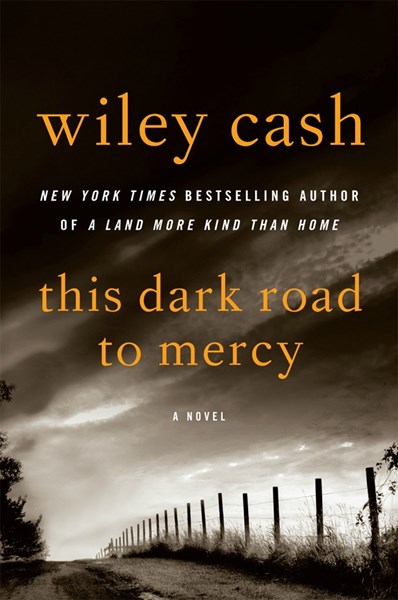MANCHESTER, N.H., Feb. 25, 2015 (GLOBE NEWSWIRE) -- Several months after Wiley Cash won a second Gold Dagger from the Crime Writers' Association—this one for his novel "This Dark Road to Mercy"—the North Carolina writer and that same novel are on the short list of finalists for an Edgar Allan Poe "Best Novel" award from the Mystery Writers of America.
This continues a trend for Cash, who teaches in the low-residency MFA in Fiction and Nonfiction program at Southern New Hampshire University. He writes consciously within the tradition of Southern literary fiction, but not—at least not by design—within the genre of crime fiction. Nonetheless Cash's first book, "A Land More Kind Than Home," won a Gold Dagger from the London-based CWA for 2012's best debut novel.
That story revolves around the death of an autistic boy—and its cover-up—during a church service led by a renegade evangelical pastor. In "This Dark Road to Mercy," Wade Chesterfield, a failed professional baseball player, stumbles across a backpack full of cash linked to an armored car robbery. He pockets the cash and then kidnaps his two young daughters, who had been wards of the state since the death of their drug-addled mother. Among Wade's pursuers is a disgraced police detective, who is trying to rebuild his career, and also someone more dangerous, another failed ball-player (and ex-con) named Robert Pruitt. Pruitt is on the payroll of the thieves and bears a toxic personal grudge against Wade.
"In the rhythms and cadence of the South," wrote Kirkus Reviews, "Cash offers a tale about family and about the tenuous link among the right choices, living with consequences or seeking redemption." This story's Gold Dagger was for "Best Novel," and now the book is in play for the same award on this side of the Atlantic.
"The ideas of choice, consequence, and redemption—or not—are at the heart of 'A Land More Kind Than Home' as well," notes novelist/essayist Benjamin Nugent, the director of Southern New Hampshire's MFA writing program. "Both novels are rich contributions to a Southern literary tradition that has always dealt with these themes."
"I'm frankly surprised—and deeply honored—to be the beneficiary of this sort of recognition from the Mystery Writers of America, and also the CWA, especially since I really don't consider myself a crime writer," Cash said. "But in the national imagination, I think mystery attaches itself to the American South. After all, 'This Dark Road to Mercy' is based on the real life murder of two young girls I knew while growing up in North Carolina."
He added that to a certain extent the South remains terra incognita today to those outside the region. "The earliest settlers didn't know what awaited them in the mountains of Appalachia, the wilds of the Mississippi, or the swamps of the East Coast. Some of that mystery endures today."
Another mystery is whether "This Dark Road to Mercy" will surpass Cash's debut novel in climbing up from the short list to claim one of America's most prestigious literary prizes. Other finalists for Best Novel are "Wolf" by Mo Hayder; "Mr. Mercedes" by Stephen King; "The Final Silence" by Stuart Neville; "Saints of the Shadow Bible" by Ian Rankin; and "Coptown" by Karin Slaughter.
Someone will be plucked from that lineup on April 29, when awards in various categories are announced at the Grand Hyatt Hotel in New York City.
Photos accompanying this release are available at:
http://www.globenewswire.com/newsroom/prs/?pkgid=30999
http://www.globenewswire.com/newsroom/prs/?pkgid=31000
Choice, Conseqence, and Redemption
Wiley Cash, who has never set out to be a crime writer, nonetheless wins an Edgar nomination for Best Novel.
| Source: Southern New Hampshire University MFA and Creative Writing

